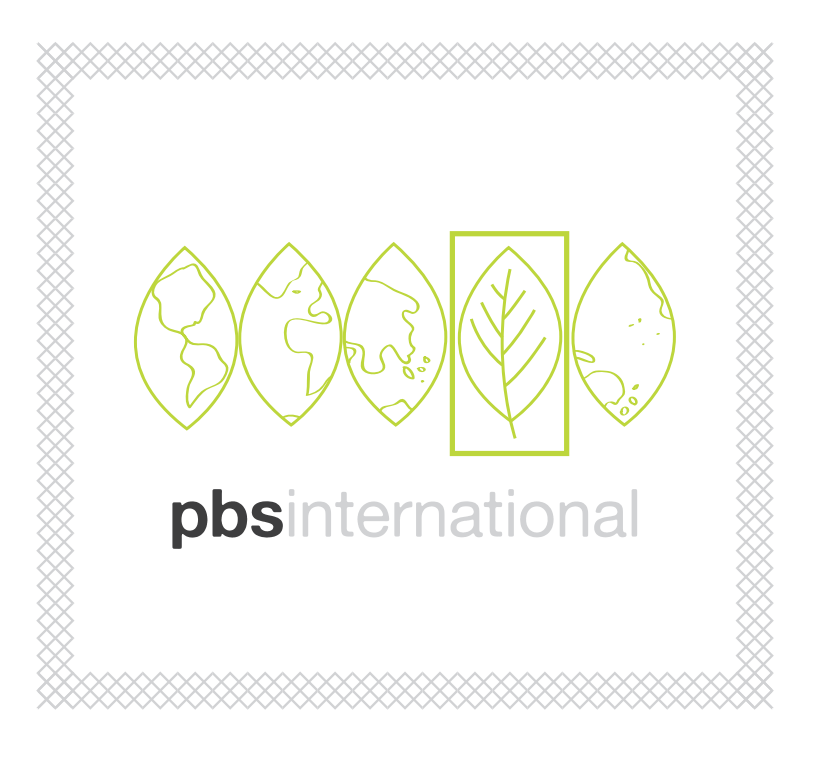- Soil Association
- Farmers & growers
- Farming events
- Plant Breeding Fit for the Future Conference

Plant Breeding Fit for the Future Conference
Plant Breeding Fit for the Future Conference
How will we secure the plant varieties needed for a more sustainable and resilient UK agriculture?
The agricultural sector is currently facing a series of complex challenges: sky-rocketing energy costs, devastating climate change effects, biodiversity loss and consumer dietary shifts to name a few. This event was an opportunity to join experts and stakeholders from diverse backgrounds for a day of fruitful knowledge exchange and creativity to rethink how our plant breeding systems can became a force to address these challenges.
Stakeholders from a range of agricultural philosophies came together to learn more about the current context and plant breeding frameworks from experts from across the industry. Participants also had the opportunity to explore what are the future needs in agriculture, how to bridge the gap between the system and these needs to improve breeding, and how to ensure we have the right plants to tackle the UK’s challenges. In addition to expert panels, the event’s delegates had a space to discuss these challenges in structured discussion groups focusing on exploring the ingredients required to fast-track plant breeding for a sustainable future, what can be done to support resilience in plant breeding and how a pipeline can be characterised to support such a system, how we can support and incentivise plant breeding - both today and for the future- and comparing a population-based approach to plant breeding with the current varieties system.
You can explore some of the main aspects discussed, as well as suggested ways forward in the event’s resources.

-
Meet our speakers
-
Dr. Bruce D. Pearce
Director of Horticultural Science
Garden Organic
Bruce is Director of Horticultural Science at Garden Organic and has worked in the organic sector for 30 years. Firstly, he managed the UK’s governments organic research programme and then 20 years as Director of Research at the Organic Research Centre. More recently he was Senior Farming Programmes Manager for Soil Association Scotland and works as a freelance consultant. His research activities include plant breeding and seed policy, crop production, and approaches to knowledge exchange.
-
Dr. Charlotte Allender
Head of UK Vegetable Genebank
University of Warwick
With a background in ecology and evolution, I am interested in understanding patterns of variation in crops and related wild species. I have been Head of the UK Vegetable Genebank since 2012, ensuring that the seed samples in our collection are conserved and available for use by plant breeders, researchers and others. I’m involved with other projects such as the Vegetable Genetic Improvement Network which develop pre breeding resources and datasets from genebank collections, and am active in international genetic resources networks. Twitter handle for UKVGB @WarwickGRU
-
Dr. Ruth Bastow
Innovation Director
CHAP
Ruth is Innovation Director at CHAP and has a Ph.D. in Plant Biology. Ruth has held research posts both nationally and internationally. She left the bench to pursue a career in science strategy, policy and communication initially with GARNet and then established the UK Plant Sciences Federation and was awarded the Society of Biology Presidents Medal for support of the UK Plant Sciences Community. Ruth has held several leadership roles including Executive Director of the Global Plant Council, where she coordinated the activities of 28 member national, regional and international plant, crop and soil societies to facilitate the development of plant science for global challenges.
-
Jo Lewis
Policy and Strategy Director
Soil Association
Jo directs the Soil Association’s Policy Unit. She is a Trustee and former Chair of the Food Ethics Council and a Trustee of Sustain, the alliance for food and farming. Jo led the development of the Soil Association’s Food for Life programme including the Food for Life Served Here accreditation for healthy and sustainable menus. Before joining the Soil Association, Jo led policy teams in Defra and Green Alliance.
-
Liz Bowles
Chief Executive Officer
Farm Carbon Toolkit
Liz is the Chief Executive Officer at the Farm Carbon Toolkit. Liz has a wealth of experience of agriculture and food both in the UK and internationally. She has worked in the sector for over 30 years and brings a practical approach combined with scientific and sector knowledge to her roles. Liz is an Oxford Farming Conference Director and an advisor to Sell My Livestock. In her spare time Liz manages one of the largest pedigree flocks of Shropshire sheep in the UK and combines this with being a Council Member of the Breed Society. Prior to joining FCT Liz was Associate Director of Farming and Land Use at the Soil Association. Liz has an extensive expertise in the UK food and farming markets, and a deep and practical understanding of the importance of improving soil health, reducing environmental impacts and building resilience within the sector. She advocates that building economic resilience must occur alongside retaining product quality and animal welfare standards and building sustainable, regenerative practices on farm.
-
Professor Tim Benton
Research Director
Chatham House
Professor Tim G. Benton leads the Environment and Society Programme at Chatham House. He joined Chatham House in 2016 as a distinguished visiting fellow, at which time he was also dean of strategic research initiatives at the University of Leeds. From 2011-2016 he was the ‘champion’ of the UK’s Global Food Security programme which was a multi-agency partnership of the UK’s public bodies (government departments, devolved governments and research councils) with an interest in the challenges around food.
-
Professor Tom MacMillan
Elizabeth Creak Chair in Rural Policy and Strategy
Royal Agricultural University
Professor Tom MacMillan is Elizabeth Creak Chair in Rural Policy and Strategy, at the Royal Agricultural University, Cirencester. His role is to inform national and international policy relating to the land-based sector, the environment and food. Until recently, he was part of the team supporting Henry Dimbleby in developing the National Food Strategy. He is also an expert advisor to the Food, Farming & Countryside Commission. Tom joined the RAU from the Soil Association, where he was Director of Innovation. From 2003-2011 he was Executive Director of the Food Ethics Council.
-
Kate McEvoy
Co-Founder
Real Seeds
Kate McEvoy is a founder member of Real Seeds and has been growing and selling vegetable seed since 1998. Based in Pembrokeshire, Real Seeds supplies seed to home gardeners and promotes small scale seed saving amongst gardeners & growers. Over the last few years they have been working with the Gaia Seed Sovereignty Programme to develop a network of commercial seed growers across Wales producing open pollinated locally adapted seed.
-
Professor Katherine Denby
Professor of Sustainable Crop Production
University of York
Katherine Denby is a member of the Centre for Novel Agricultural Products at the University of York. Her research focuses on plant disease resistance, novel bio-control strategies and crop improvement for disease resistance, yield and quality traits through integrating genomics, transcriptomics, network analysis and quantitative genetics. Katherine’s work is focused on leafy vegetables to meet the needs of UK and Global South agriculture and new production systems (e.g. vertical farming).
-
Jen Bromley
Chief Research Officer
Vertical Future
Jen is Chief Research Officer at Vertical Future, a vertical farming technology development and research company. Her team's research focuses on understanding how to produce crops indoors without impacts on quality whilst reducing costs of production. She has PhD in Plant Sciences from University of Cambridge and is a professional by-fellow at Churchill College. Her working life has taken her into academic and industrial application of plant science from biofuels to leafy crop production.
-
Paul Gosling
Senior Crop Production Systems Scientist
AHDB
Paul manages the AHDB team that delivers the Recommended Lists. Paul joined AHDB in 2011 after a career in research, working initially in crop protection, managing a wide range of disease work, later also taking on the cereal and oilseeds weeds work. In 2019 Paul joined the RL team as manager and is responsible for the trial and data teams and the committees that deliver the Recommended Lists.
-
Dr. Joanna Matthews
Technical Trials Manager
Germinal Horizon Wiltshire
Technical trials manager for Germinal Horizon Wiltshire, researching innovation and future developments in forage crops. Strong grounding in ruminant animal production and research, completing at PhD in 2013 at RAU in nitrogen accumulation and recovery from fertility building crops. As well forage crop specialist at NIAB from 2013-2018, responsibilities including co ordinating of the national and recommended list for forage crops, as well technical expert for APHA on variety selection for national list.
-
-
Why this conference now?
As the evidence for climate change impact becomes impossible to ignore, it is clear that the UK will need new plant varieties to achieve a more sustainable and resilient agriculture. This requires revising and reimagining our current system; however, when discussing this topic the focus is often on technologies. In this realm the resulting debate becomes quickly polarised, leaving little space to discuss the big picture around the UK planting breeding system: understanding its current challenges and drivers for the development of new varieties, discussing the current plant breeding system, reimagining how it could be more impactful and exploring the changes required to move forward and make it futureproof.
This conference aims to become that space, providing a unique opportunity to bring together a diverse range of agricultural philosophies and explore current plant breeding frameworks and future needs in agriculture, search for areas of synergy and discuss ways to improve plant breeding to ensure we have the right plants to tackle the UK’s challenges. We hope this will be the beginning of a fruitful knowledge exchange which can lead to a comprehensive understanding and a starting point to reimagine the plant breeding system we need in the 21st Century.
Plant breeding and the varieties we grow play a crucial role in sustainable agricultural systems. This event provides an excellent and timely opportunity to explore future requirements and explore how to maximise and leverage the impact of plant breeding to meet market needs alongside local and global challenges.
For this to be a success, collaboration is key. Bringing industry stakeholders together will provide an excellent opportunity to identify areas for potential cooperation, foster greater efficiencies and hopefully encourage a more successful transition from breeding programmes to realisation in the market.
Thank you to our sponsors:
Gold sponsor
PBS International is a UK based company that has led the way in applying fabric technology to pollination control for over 50 years, designing and manufacturing specialist pollination bags and tents for plant breeders and seed producers worldwide. Customers recognise the long-term gains in higher yields and reduced risks from using PBS products, and they have built relationships with commercial seed producers, academic organisations and non-profits in over 35 countries.

Supporter sponsors


